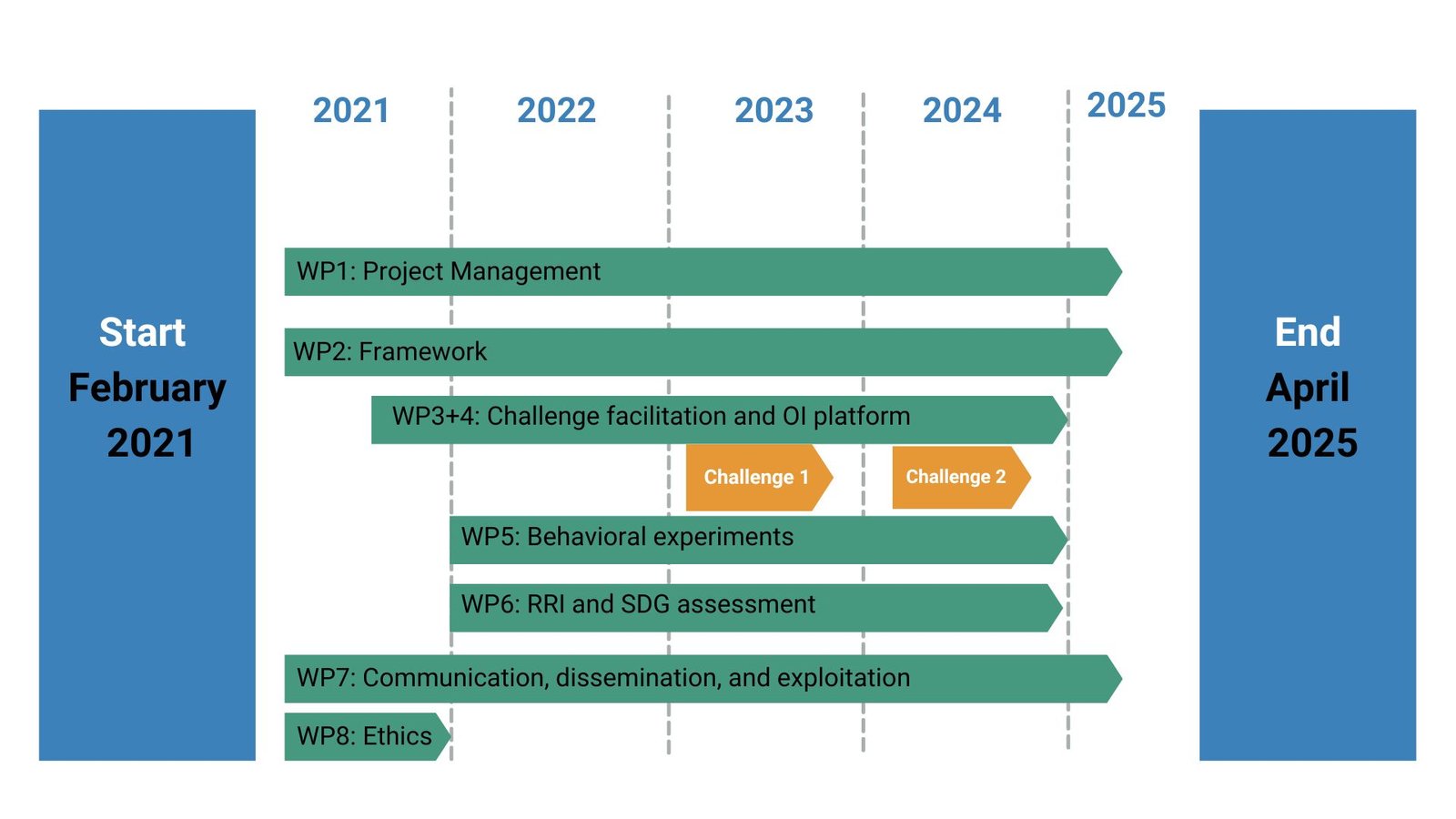About

Project FRANCIS

FRANCIS Objectives
The FRANCIS project objectives are as follows:
Set up a “Citizen Frugal Innovation Toolbox”
The Toolbox is a collection of innovation methods to support citizens in concept development. The toolkit can be usedto support future Frugal Innovation initiatives with citizens.
Setup and run two OI challenges
Launched in February 2021, the first phase of the project in 2021 and 2022 has established a scientific foundation with recommendations on how to involve different participants groups in the challenges and how to encourage the shared development of ideas. The second phase, which will take place in 2023 and 2024, runs two open innovation challenges, each mentored by an industry partner, who supports the participants in detailing their ideas.
Develop an interdisciplinary “Citizen Frugal Innovation framework”
Project Timeline

PERT Diagram

Contact Us
Project Coordinator
Liza Wohlfart
Fraunhofer IAO
Email: liza.wohlfart@iao.fraunhofer.de
Communication and Dissemination Manager
Venkata Gandikota
InnoFrugal
Email: venkata@innofrugal.org